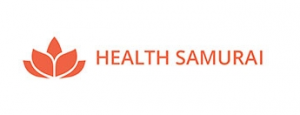The Future of Healthcare Interoperability: FHIR
Pavel Smirnov, CEO of Health Samurai, shares some thoughts about FHIR, the new standard for exchanging health data.
FHIR is a standardized way to exchange health care data by harnessing the power of the internet.
In major industries such as banking and education, data is being shared seamlessly between different systems.
Yet in health care, there are major data silos that prevent this from happening. FHIR is changing that by allowing different systems to share information with each other using modern web technologies.
This new interconnectivity will prevent medical waste, cut clinical and administrative costs, and also ensure a higher quality of care delivery. FHIR is quickly becoming the de facto standard for health care IT with support from the Office of the National Coordinator for Health Information Technology and major vendors who are working to drive its adoption.
What are FHIR use cases?
Most people think about FHIR solely as an API tool that allows access to health care data, but FHIR enables other use cases.
Imagine that your team is developing a software that needs to manipulate and store a list of patient diagnoses. Your developers would need to decide what attributes they have to keep for each diagnosis. After they talk to a few domain experts and do research they might come up with something like a Systematized Nomenclature of Medicine (SNOMED) code and a name for the diagnosis, onset date/time, and clinical status. They would then spend lots of time designing data structures and revisiting data modeling many times for adjustments to accommodate new use cases throughout the product lifecycle.
But with FHIR, your team can just open a FHIR spec and learn what the best industry experts have collaboratively designed for storing diagnoses (referred to as conditions in FHIR terminology). The standard will guide developers to the right data model and terminologies to use. Even developers with no health care IT expertise can build products with quality, ease and speed.
You can also get data from and to provider EHR systems easily because FHIR has well-documented maps with legacy interoperability standards. Several teams within your company can develop different solutions and these solutions will work with one another seamlessly without much interaction between those teams because of the same standardized data models running in the back-end.
There are many applications for FHIR, and that’s why we built our first commercial FHIR product, Aidbox, to incorporate various use cases such as being a turnkey clinical data provisioning solution and an API that can connect to existing health care systems to make it easier to build mobile and web applications.
How will FHIR affect me as a health care provider?
As a provider, you will be able to access fuller patient data sets in real-time and make better clinical decisions because of the availability of information. There will be fewer repeated tests and errors because you’ll be able to see the entire story of the patient rather than fragmented data points that exist with no personal context. FHIR will empower providers to share information and coordinate care at a level of precision that doesn’t currently exist and improve the quality of care provided.
How will FHIR affect me as an entrepreneur?
You will be able to build mobile health care products faster and have access to data in EHR systems by using a FHIR API. This opens the door to innovation and enables those who don’t come from health care backgrounds to create game-changing products. Because data is not siloed, collaboration becomes possible and it will be easier to innovate in health care.
How will FHIR affect me as a patient?
You’ll soon be able to use a suite of mobile and web applications in the cloud and have easy access to your personal health care data. For example, Apple is consulting the Argonaut Project on storing health records, and being able to keep that data on the iPhone would be a huge convenience for consumers.
How can I learn more?
- HL7 posts FHIR news and announcements on their YouTube channel and website.
- Join in the FHIR developers chat on https://chat.fhir.org/.
- The FHIR spec is open source and distributed under a permissive CC0 license.
- Health Samurai will be posting upcoming events and updates related to FHIR here.
And feel free to email me at pavel@health-samurai.io!
Read more about perspectives on healthcare transformation and innovation at Cambia Grove.




